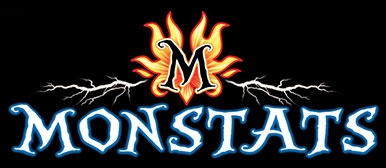


About Monstats
Monstats has been developed by educators with over 18 years' experience in mathematics education, which includes teaching in Primary School, Secondary School, Further Education, Higher Education and Initial Teacher Training.
As a result of our experiences, we believe that everyone has the potential to learn and achieve in mathematics and that children need opportunities to explore, engage and connect with mathematical concepts, (Boaler 2015).
Research tells us that children as young as five years old, experience maths anxiety, often due to the pressure of memorising procedures and facts, and many will take this fear into adulthood, (Ramirez, et al, 2013). We believe that this is avoidable and careful consideration to task design with a focus on engagement, exploration, and freedom to discuss and develop ideas, can enable children to learn more effectively and develop positive relationships with mathematics.
The resource originated in a Year 9 classroom and was created for a group of students, who had an overwhelming fear of mathematics. The students needed non-threatening opportunities to engage with mathematics. Once the fear of mathematics was lifted, the students were free to learn and develop their own mathematical thinking. This idea has been further developed, to provide the widest possible opportunities for children to explore mathematical ideas and concepts, in an engaging and non-threatening way.
As educators, we also understand the enormity of teachers' workloads and have therefore developed activity plans and accompanying classroom presentations, covering Fractions, Algebra, Geometry, (Position and Direction), and Statistics. The Activity Plans and associated resources are designed to use either as introductions to topics alongside other classroom activities, or on their own. Further ideas for cross curricular learning are offered within the summaries of curriculum areas.
Whilst the activities have been mapped to the UK's National Curriculum (2014), some of the activities associated with concepts that many students struggle with such as Fractions, Algebra and Statistics, may also be suitable for interventions in KS2 and KS3.
References
Boaler, J. (2015). What's Math Got To Do With It? How Teachers and Parents Can Help Transform Mathematics Learning and Inspire Success. New York: Penguin.
Ramirez, G., Gunderson, E., Levine, S., and Beilock, S. (2013). Math Anxiety, Working Memory and Math Achievement in Early Elementary School. Journal of Cognition and Development. 14 (2): 187–202.